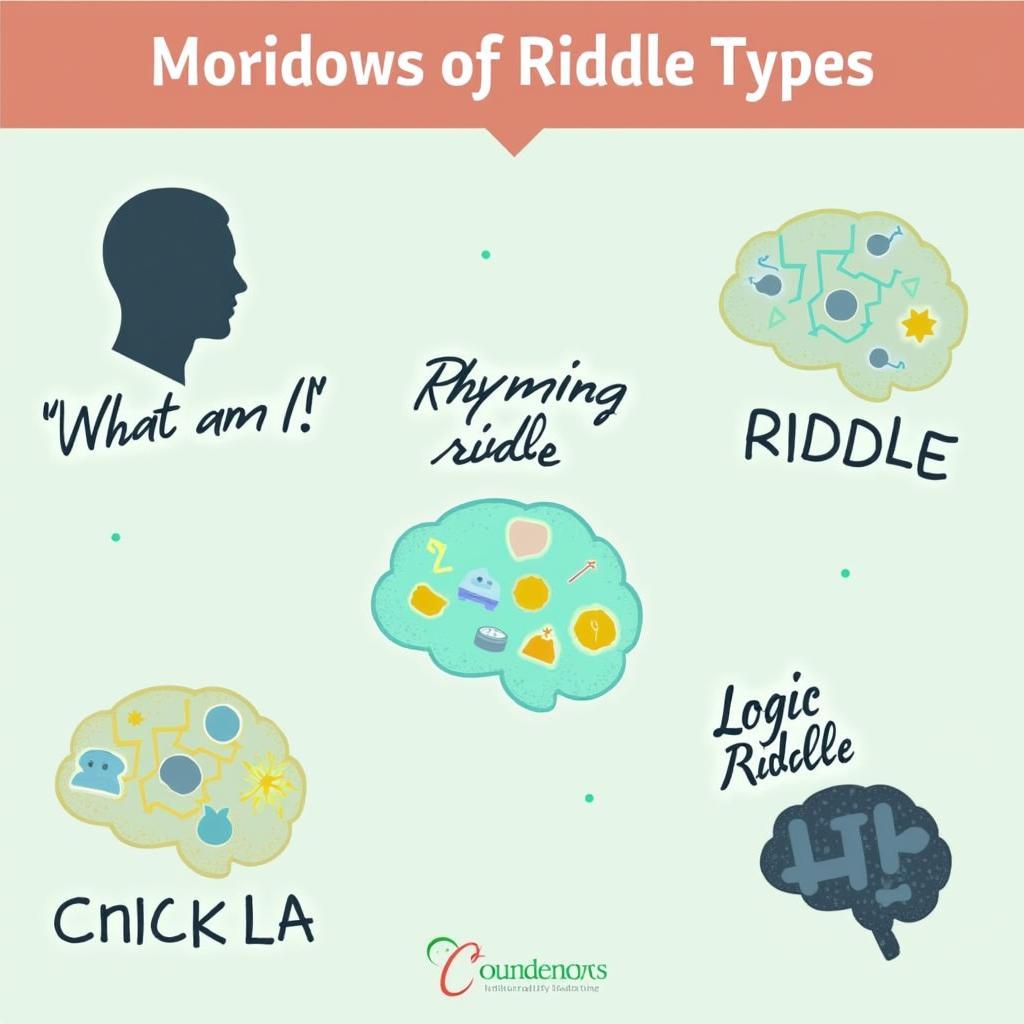
Boost your English skills and have a blast with these simple English riddles with answers! Câu đố Vui Tiếng Anh đơn Giản Có đáp án are a fantastic way to learn new vocabulary, improve your comprehension, and challenge your thinking in a fun, engaging way. Whether you’re a beginner or an advanced learner, riddles can be a valuable tool for improving your English fluency.
Why are Simple English Riddles so Effective?
Simple English riddles with answers offer a unique approach to language learning. They encourage active participation, prompting you to think critically and creatively to find the solution. This active engagement helps solidify new vocabulary and grammar structures in your memory more effectively than passive learning methods.
Benefits of Using Riddles for Language Learning
- Enhanced Vocabulary: Riddles introduce new words and phrases in a contextualized manner, making them easier to remember and understand.
- Improved Comprehension: Deciphering riddles requires careful reading and analysis, boosting your overall comprehension skills.
- Increased Critical Thinking: Riddles challenge your problem-solving abilities and encourage you to think outside the box.
- Fun and Engaging Learning: Riddles turn learning into a game, making the process enjoyable and motivating.
 Câu đố vui tiếng anh đơn giản cho người mới bắt đầu
Câu đố vui tiếng anh đơn giản cho người mới bắt đầu
Exploring Different Types of Simple English Riddles
There’s a vast world of riddles out there! From classic “What am I?” riddles to more complex logic puzzles, the variety is endless. Here are a few common types of simple English riddles you might encounter:
- What am I? Riddles: These riddles describe an object or concept, challenging you to guess its identity.
- Rhyming Riddles: These riddles often provide clues through rhymes, making them fun and memorable.
- Logic Riddles: These riddles require deductive reasoning and problem-solving skills to find the answer.
Examples of Simple English Riddles with Answers
- What has an eye, but cannot see? A needle.
- What has to be broken before you can use it? An egg.
- I have cities, but no houses. I have mountains, but no trees. I have water, but no fish. What am I? A map.
 Ví dụ câu đố tiếng anh đơn giản có đáp án
Ví dụ câu đố tiếng anh đơn giản có đáp án
How to Incorporate Riddles into Your English Learning Routine
Integrating riddles into your daily routine is simple and effective! Here are some ideas:
- Riddle of the Day: Start your day with a riddle to get your brain working and reinforce your vocabulary.
- Riddle Games with Friends: Challenge your friends or family members to riddle contests for a fun and interactive learning experience.
- Online Riddle Resources: Explore websites and apps dedicated to riddles to discover new challenges and track your progress.
Tips for Solving English Riddles
- Read Carefully: Pay close attention to every word and detail in the riddle.
- Think Creatively: Don’t limit yourself to literal interpretations. Riddles often involve metaphors and wordplay.
- Break Down the Riddle: Identify keywords and phrases that might provide clues to the answer.
Conclusion
Câu đố vui tiếng anh đơn giản có đáp án are a powerful and entertaining tool for enhancing your English language skills. By incorporating riddles into your learning routine, you can expand your vocabulary, improve comprehension, and boost your critical thinking abilities while having fun. So, start riddling and unlock a world of language learning enjoyment!
FAQ
- Are riddles suitable for all English proficiency levels? Yes, you can find riddles suited for beginners to advanced learners.
- Where can I find more English riddles? Numerous websites, books, and apps offer a wide selection of riddles.
- How can riddles improve my vocabulary? Riddles introduce new words in context, making them easier to learn and remember.
- Can riddles help with English pronunciation? Reading riddles aloud can improve pronunciation and fluency.
- What are the benefits of solving riddles regularly? Regular riddle-solving enhances critical thinking, problem-solving skills, and vocabulary.
- Are there any specific types of riddles that are particularly helpful for learning English? “What am I?” riddles and rhyming riddles are especially beneficial for vocabulary acquisition.
- How can I make learning English with riddles more engaging? Turn it into a game with friends or family!
Mô tả các tình huống thường gặp câu hỏi
Người học thường tìm kiếm “câu đố vui tiếng anh đơn giản có đáp án” để luyện tập tiếng Anh một cách thú vị, đặc biệt là khi muốn mở rộng vốn từ vựng và cải thiện kỹ năng đọc hiểu. Các tình huống thường gặp bao gồm:
- Ôn tập cho bài kiểm tra
- Học tiếng Anh giao tiếp hàng ngày
- Tìm kiếm hoạt động giải trí bổ ích
- Giảng dạy tiếng Anh cho trẻ em
- Chuẩn bị cho các buổi sinh hoạt nhóm
Gợi ý các câu hỏi khác, bài viết khác có trong web.
Bạn có thể tìm thấy thêm các bài viết về học tiếng Anh qua trò chơi, từ vựng tiếng Anh theo chủ đề, và các bài luyện nghe nói tiếng Anh trên trang web Game Vui.